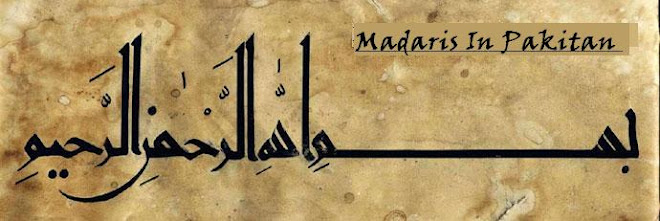God created man and women to live in this world in prosperity and accept each other the way they are. Islam teaches humanity and love for one another, no where in quran is it mentioned that violence is the answer to any problem.
"O mankind! We created you from a male and a female and made you into nations and tribes that you may know and honor each other (not that you should despise one another). Indeed the most honorable of you in the sight of God is the most righteous." Chapter 49, Verse 13.The importance of gaining knowledge is very high in Islam and it goes as far as the fact that faith and knowledge come together. In Bukhârî's arrangement therefore "knowledge follows faith." Islamic institutes in Pakistan concentrate a lot on teaching there students the religious book called quran and that is all they emphasize on. However what they forget in teaching only Quran is that in Quran itself it is stated that one should have all required knowledge to walk in line with the other entire nation. Prophet Muhammad (S.W) said: “People are mines, like mines of gold and silver; the more excellent of them in the days of Ignorance are the more excellent of them in Islam when they attain knowledge."[10] (M-Msh. 2:l.) . Islamic institutes provide quranic education as well as some other subjects. Mostly quran is being taught in these institutes and because of which a stereotypical image of Islamic institutes have been made by the outsiders that they produce terrorists. Quran or Islam does not state anywhere that non-Muslims should be killed in the name of Islam. Ahadis is any authentic statement given by the last messenger of Allah, however the authenticity has to be confirmed therefore one hadis which states :
"If anyone insults me, then any Muslim who hears this must kill him immediately."
Some terrorists believe that based on this hadis they have the right to kill anyone. However what the holy prophet actually said was:
Some terrorists believe that based on this hadis they have the right to kill anyone. However what the holy prophet actually said was:
"Religion is very easy and whoever overburdens himself in his religion will not be able to continue in that way. So you should not be extremists, but try to be near to perfection and receive the good tidings that you will be rewarded."
Sahih Bukhari, Volume 1, Book 2, Number 38







